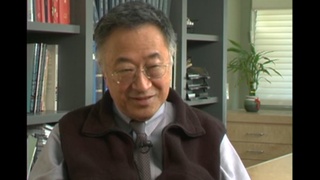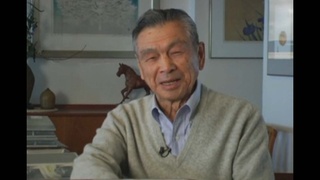Interviews
Starting to get angry
After basic training or during basic training, I got a furlough and came to LA and there was talk of evacuations so I helped my mother pack and then I went to the Japanese school where we did our kendo and the boy scout meeting[s] and I see many people moving into the classrooms and I said,” what’s going on here?” I says. “These are people from Terminal Island, they were booted out of there. And had no place to go, so they’re here.” So I said, hey how come they were booted out?
You know, that’s when I started to think, hey something is wrong here and I think that was the first time my blood began to boil, I think. Even in the army before that I had no problem- basic training, it was all mixed group, I had a little ROTC and the boy scouts- we had close order drill, so even the sergeant knew that’s why he had me leading the whole platoon, as just a trainee, you know, leading the platoon and all. I didn’t feel any discrimination in the army, of course later on I applied for officer’s training, then I was told “you’re not eligible” so I went for a non-com class to become a non-commission officer but there was slight indication of that I says, I guess I am Japanese and all that, but I didn’t blame anybody, I says, well such is life, you know, but it was at the Terminal Island “expulsion” you might say that, that’s the first time I start to feel a…I was starting to get angry, you might say.
Date: March 25, 2005
Location: California, US
Interviewer: Sojin Kim
Contributed by: Watase Media Arts Center, Japanese American National Museum










